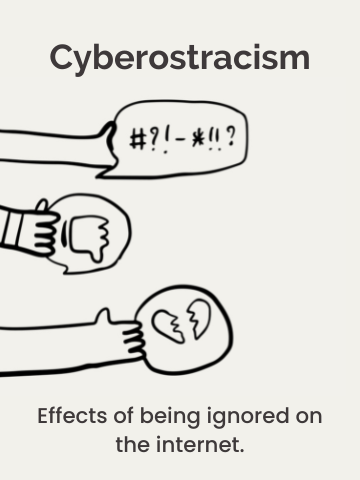Cyberostracism
Effects of being ignored on the internet.
What is it about?
Medicine and Health
Ostracism has been widely documented as powerful and ever-present.
Ostracism has been seen as an evolutionary function for those using it (keeping the group cohesive and more likely to survive), in contrast to the devastating effects of those targeted (being forced to join other groups or die).
Social ostracism can range from averted eye contact to exile and can lead to depressed moods, loneliness, anxiety, frustration, invisibility, and helplessness. How and if ostracism is perceived can depend heavily on the individual’s interpretations of the situation.
The danger of ostracism is that it threatens four fundamental human needs: belonging, self-esteem, control, and meaningful existence.
In humans, it has been observed in many different groups and contexts, including primitive and modern cultures, the workplace, schools, interpersonal relationships, etc.
Despite containing active social communication, internet usage replaces stronger social ties with weaker ones by taking time away from face-to-face contact. This leads to the quality of interactions decreasing, resulting in feelings of loneliness, depression, and a lower general sense of belonging.
This harmful effect is additionally worsened when considering that observations report that Internet users often perceive that they are being ignored.
